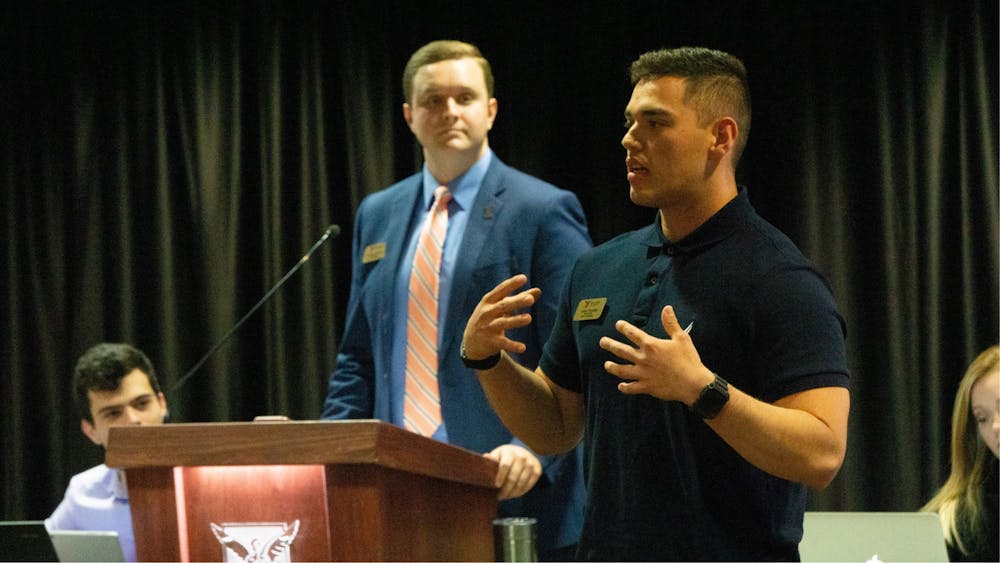Ball State’s Student Government Association (SGA) may be moving on to a new set of governing policies.
At the Wednesday senate meeting at the LA Pittenger Student Center, SGA President Aiden Medellin proposed an alternative for the use of platform points in future SGA elections — abandoning them altogether.
Medellin delivered this suggestion during his State of the Senate update, during which he discussed the senate’s progress on its current platform points and gave advice about next year’s SGA elections.
“It’s hard, and platform points are great for letting students know what we specifically plan to do,” he said. “It's good so that they know how to hold you accountable. It's good so [the media] have something to report on so that they know, ‘Hey, this is what Ball State Student Government Association is failing or succeeding to do.’”
After he updated the senate on the current progress of the Elevate slate’s platform points, he said SGA slates can often make promises they cannot keep or have a good idea for a platform point but lack the research required to make a policy decision.
Medellin said sustainability was a problem with trying to fully realize 12 to 15 platform points each year.
His proposal was not openly debated in the senate, but some senators and slate members pointed out some potential problems inherent to running a campaign without platform points.
“I think if anybody does decide to go the route that the president suggests, then they will certainly be in uncharted waters,” said SGA Vice President Cameron DeBlasio. “I think that people who continue to use platform points will seem more conventional to the voter base.”
Senator Matt Hinkleman also said slates that used platform points in the next elections would likely have a “competitive advantage” over slates that decide to run without platform points.
Prior to Medellin’s proposal, SGA also received two guest speakers: Counseling Center Director William Betts and Ball State’s Vice President for Governmental Relations Becca Rice.
Betts spoke to the senate about the Counseling Center’s recent change to group sessions due to the increase in new student requests to use the center’s services. This was done as part of Elevate’s platform point on expediting the counseling services.
“There are some folks that, whatever is going on for them, need to be seen every day of the week,” Betts said. “There is not enough money in the entire university budget for me to see 22,000 people every day of the week.”
Betts also said he expects an additional 600 calls when students enter finals week.
After Betts' speech, Rice spoke briefly to the senate about the function of her office and the role of the local, state and federal governments in the university’s operations.
Later in the meeting, the senate moved on to several other matters, including budget updates and the approval of a new at-large senator, Jessica Vaughn, who passed 32-0 with three abstentions. Additionally, Hugo Madrigal was named Senator of the Month by the executive slate.
Finally, the senate introduced three senate orders commending the Ball State football team for their 52-14 Homecoming victory over the Toledo Rockets, the Community & Environmental Affairs Committee for their annual Dining in the Dark event and the work of Muncie-Delaware Clean and Beautiful, along with Muncie Urban Forestry, for planting 14 new trees on campus.
The orders will be voted on at a later meeting.
Contact John Lynch with comments at jplynch@bsu.edu or on Twitter @WritesLynch.




